Latin America Update, January 2014
In 'Latin America Update' Gateway House lists some of the important events in Latin America over the past month
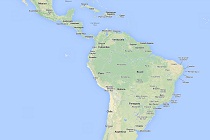 Courtesy: Google Maps
Courtesy: Google Maps
In 'Latin America Update' Gateway House lists some of the important events in Latin America over the past month
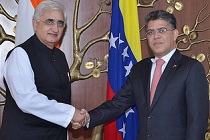 Courtesy: Ministry of External Affairs, India
Courtesy: Ministry of External Affairs, India
In 'India-Latin America Engagements', the Latin America Desk at Gateway House presents a selection of news of India’s engagement with the region during the previous month
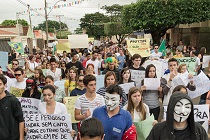 Courtesy: monotrilho|/Flickr
Courtesy: monotrilho|/Flickr
With elections scheduled in seven Latin American countries, 2014 will be a year of significant political developments in the region. As we enter 2014, Gateway House examines the important events that defined Latin American politics and economy in 2013
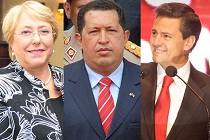 Courtesy: Wikimedia Commons
Courtesy: Wikimedia Commons
The death of Venezuelan President Hugo Chavez, election of President Michelle Bachelet in Chile, reforms in Mexico and the legalisation of cannabis in Uruguay have implications for the Latin American region. Gateway House examines how these will shape the region’s politics and economy in the coming years
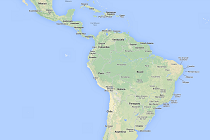 Courtesy: Google Maps
Courtesy: Google Maps
In 'Latin America Update' Gateway House lists some of the important events in Latin America over the past month
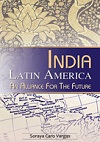 Courtesy: Vitasta Publishing Pvt. Ltd.
Courtesy: Vitasta Publishing Pvt. Ltd.
In ‘India-Latin America: An Alliance for the Future,’ Soraya Caro questions the mutually distorted perceptions between Indians and Latin Americans, and offers a new multi-dimensional lens for looking at bilateral ties
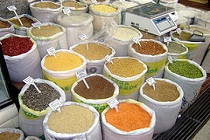 Courtesy: Rigues/Flickr
Courtesy: Rigues/Flickr
A recent UN report praises governments for promoting the right to food. At the same time, India’s Food Security Act will encounter resistance at the WTO meeting in Bali in December. Can India play an exemplary role in the global power struggle over food security?
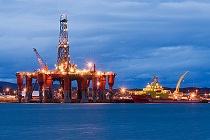 Courtesy: Berardo62/Flickr
Courtesy: Berardo62/Flickr
India’s oil imports from Latin America increased from 4.5% in 2003 to 11% in 2012-13. This marks a diversification in India’s energy policy. With Latin America’s surplus energy production and discoveries in off-shore oil fields, India must further consolidate its oil trade with the region
 Courtesy: BenjaminThompson/Flickr
Courtesy: BenjaminThompson/Flickr
According to the UN Economic Commission for Latin America and the Caribbean, the Latin American region is expected to grow at 3% in 2013. Although the growth appears modest, it is not bad given the GDP contraction in the Eurozone in the past two years and the lower growth rates in the rest of the world

Ambassador Viswanathan, an expert on Latin America, blogs about the Venezuelan elections, which saw a high turnout, free and fair elections, and Hugo Chavez re-elected as President. It is evident though, that Chavez’s model has reached its peak and is steadily and irreversibly losing appeal in the region.